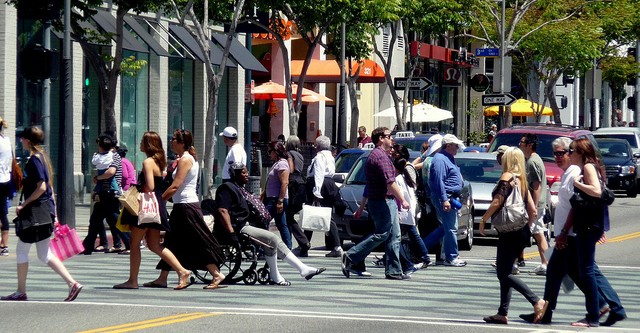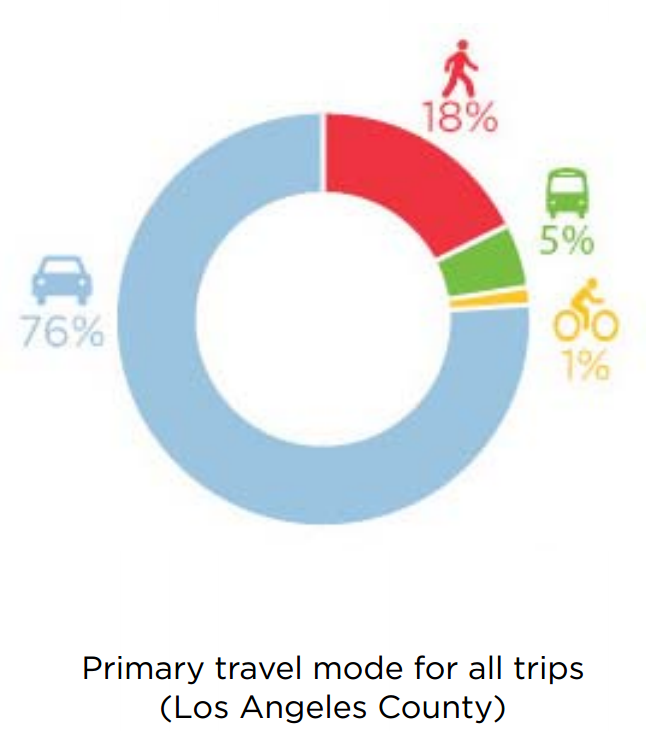
Metro has five rail lines under construction today, with new Gold and Expo Lines set to open this year. Metro's recent rail infrastructure expansion was fueled by countywide sales taxes. On top of existing Prop A and Prop C sales taxes, in 2008 voters approved the roughly $40 billion Measure R.
Forty percent of Measure R goes to expanding Southern California rail.
Twenty percent of Measure R goes to expanding Southern California freeways.
What percent of Measure R is dedicated to walking and bicycling?
None.
There should probably be a small asterisk on that "none" because a small percentage of Measure R funding has made its way to walk and bike projects. There is a fifteen percent "local return" that goes to cities to fund transportation projects, and some cities, notably Los Angeles, spent a modest percentage of their local return on walk and bike projects. Most local return throughout the county goes to car infrastructure.
Metro is gearing up for Measure R2.1. The new sales tax initiative is expected to be on the November 2016 ballot. Early estimates showed Measure R2.1 raising $120 billion over the next 40 years. Recent estimates anticipate about $100 billion. Metro is still nailing down what will actually be in Measure R2.1, through a complicated trying-to-sound-neutral process of weighing regional project requests, which will ultimately be shaped by politics and polling. To get to the two-thirds majority necessary to pass a new sales tax, Metro needs to strike a number of delicate balances. Projects need to span various regions and appeal based on voters' current travel modes as well as their future aspirations.
Though Metro has not dedicated sales tax initiative funding to walking and bicycling, other transportation funding measures throughout California have. These include measures in San Diego, Santa Barbara, Marin, Alameda, and San Francisco counties. Measure BB in Oakland's Alameda County, with twelve percent reserved to walking and bicycling.
In 2015, walk and bike advocates estimated L.A. County's unmet need for walking and bicycling infrastructure at roughly $20 billion. In a Metro staff report released this week, the agency basically concurred with advocates' estimates. Metro estimated the countywide annual walk and bike funding needs to be between $550 million and $1.5 billion. Multiplying those estimates times 20 years results in $11 to $30 billion total; this range matches advocates earlier $20 billion estimates.

A coalition of active transportation advocates is pushing for ten percent of Measure R2.1 to be dedicated to walk and bike projects.
Move L.A.'s latest straw man proposal dedicates five percent for walk and bike, with more first/last mile funding that could support walk/bike facilities.
Metro has not weighed in yet.






